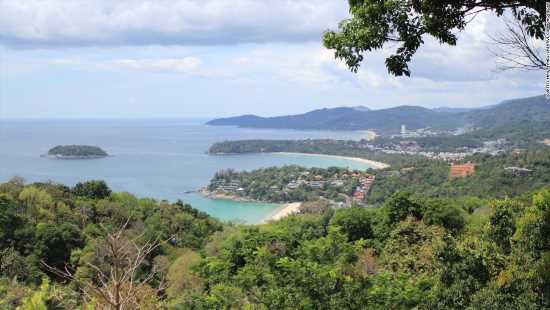If you’re planning a trip to Thailand, here’s what you’ll need to know and expect if you want to visit during the global coronavirus pandemic.
The basics
Thailand has recorded just 70 deaths and over 12,000 cases of Covid-19. For the most part, the country remains off limits for all but returning nationals and permanent residents, though foreign tourists can apply for a Special Tourist Visa (STV).
All international arrivals are subject to a 14-day quarantine at a state-approved facility.
What’s on offer
Picture-perfect islands. Golden beaches with swaying palms. Ornate temples and lush forests. Thailand has long been the go-to destination for those after a no-nonsense, easy-on-the-eye tropical break.
Who can go
Entry to Thailand is limited to nationals, permanent residents and a select number of exemptions for essential travel, including spouses.
As of December 8, the Thai government has agreed to allow in tourists from countries that apply for its Special Tourist Visa (STV) — any country in the world can sign up for the scheme.
What are the restrictions?
The STV, introduced in October 2020, allows for 90-day stays, and can be renewed twice. Having initially been offered to travelers from ‘low risk countries’, it is now available to travelers from all countries worldwide. You must apply for an STV via the Thai consulate or embassy in your own country, along with a Certificate of Entry (COE). You must also provide proof of an insurance policy that covers treatment for Covid-19 up to the cost of $100,000 and a negative PCR test taken within 72 hours of departure.
A PCR test must be taken on arrival, after which all travelers must quarantine for 14 days at government-approved quarantine facilities or Alternative State Quarantine (ASQ) facilities. This can include luxury hotels, some of which have developed quarantine packages.
A full list of participating hotels and resorts, along with package rates, can be found here: Asq.locanation.com
What’s the Covid situation?
For months, Thailand reported few locally transmitted Covid cases thanks to strict quarantine on arrival rules.
However, a spike in cases in December following an outbreak at a shrimp market in Samut Sakhon, a province southwest of Bangkok, has led the government to reintroduce various measures aimed at containing the virus.
Multiple provinces have ordered various facilities such as gyms, entertainment venues and bars to close, while restaurants have had their operating hours shortened.
Several provinces, including Phuket and Chiang Mai, have ordered travelers entering from at-risk areas to enter a 14-day self-quarantine.
At present, the country has reported over 12,000 cases and 70 deaths.
What can visitors expect?
Masks are mandated at all times in public, both indoors and out, while temperature checks are the norm.
Due to the recent outbreak, multiple provinces have ordered various facilities such as gyms, entertainment venues and bars to close. Restaurants in most places remain open, but have had their operating hours shortened and are forbidden from serving alcohol.
Most beaches and national parks remain open, though some have imposed restrictions.
Useful links
Thai Embassy, Certificate of Entry details
Certificate of Entry form
Special Tourist Visa
Tourism Authority of Thailand Newsroom
Our latest coverage
Phuket is one of the world’s best known beach resorts, and is also home to one of the world’s best beaches for plane-spotting. Planning to head there? Be sure to check out Pru, Phuket’s first and only Michelin-starred restaurant. Meanwhile, resort towns within driving distance of Bangkok are taking advantage of locals’ urge to travel. Among these is the seaside town of Hua Hin. Here’s a look at how resorts there have adapted to the pandemic.
Source: Read Full Article

